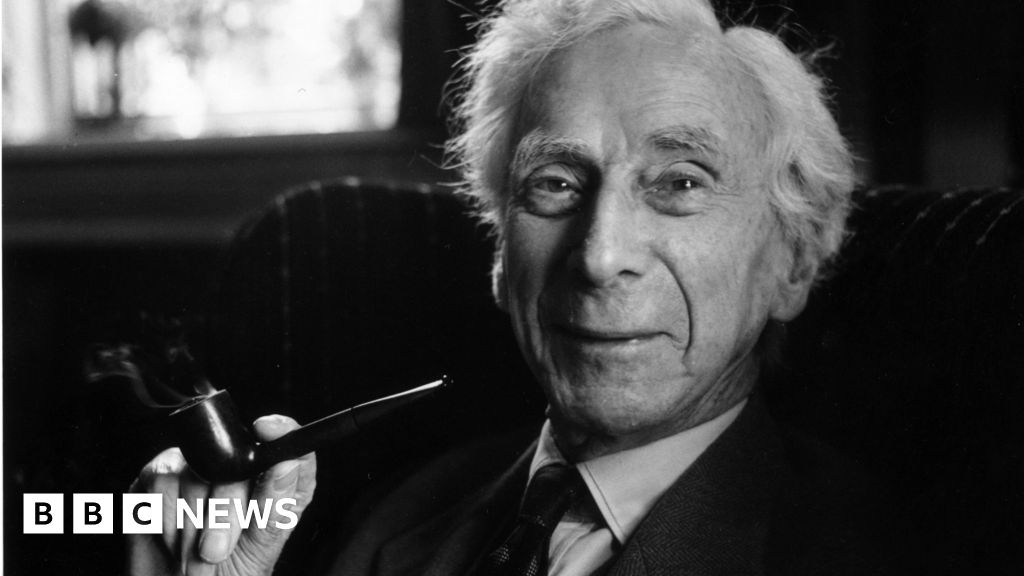- Joined
- May 30, 2020
- Messages
- 601
- Trophies
- 0
Welcome to the Russell Prize 2020.
And what a year it's been. No, not the pandemic; I'm talking about the prose. Though I guess the two are related. Pandemics bring out the best in pens. TS Eliot wrote The Waste Land while recovering from Spanish flu. Daniel Defoe's Journey of a Plague Year is his best work, much better than Robinson Crusoe.
Only one of the nominees this year was writing directly about the pandemic and its consequences. The winner of the Russell Prize 2020 certainly was not.
Before we get to them, I should remind you that the Russell Prize is named for my hero, Bertrand Russell, who together with George Orwell wrote the best non-fiction prose in English of anyone alive in the 20th Century. (Ernest Hemingway wrote the best fictional prose, and if you haven't read Joan Didion's 1998 essay on his "mysterious, thrilling" style, you haven't lived; but we'll leave that for another day).
Russell's prose united the unholy trinity of virtues that make the best essayists: plain language, pertinent erudition, and moral force. Orwell achieved it in Shooting an Elephant and several other essays; Russell achieved it through most of his work.
Other truly great, even canonical, essayists often have two out of three. For instance, Christopher Hitchens' best essays combined pertinent erudition with moral force, but lacked plain English, (the moral, intellectual and artistic case for which Orwell himself made peerlessly).
As always, the selection process was watertight, in that nominations were submitted by me, to a rigorous and impartial panel of one, also me, wherein I have self-identified as convenor, founder, chair, president, and - in a new designation for 2020, approved by me - CEO.
Final thing: I'm impartial. I'm not endorsing any of the positions taken by any of these writers. If you want to bombard me with post-structuralist analysis of how I'm reinforcing discourses and hierarchies of oppression, or whatever it might be, honestly, it's not worth your time. I just love great writing.
3 - JK Rowling
Reasons for Speaking Out on Sex and Gender Issues
JK Rowling is almost certainly the greatest writer of English children's fiction of her generation, and a remarkable humanitarian. It turns out she writes exhilaratingly powerful prose too.
In a blog about the transgender debate, she offended many people. Offence is the price of free speech. Those offended felt she was questioning their identity and even attacking their human rights, which they argue is a form of discrimination or hate speech.
I take absolutely no view whatsoever on the issues that she raises.
I do take an issue on abuse and trolling, and Rowling has achieved the inglorious honour of topping many a league table for those. The deluge of hatred that she faced before writing this blog made it brave, and it was nothing compared to what came after. Talking about bravery, so too, by the way, was Suzanne Moore's engrossing, long, personal essay for Unherd on why she left the Guardian.
We should all applaud bravery in writers - even those with whom we disagree. And Rowling's essay contained moments of both real beauty and piercing honesty, as when she revealed that she is a survivor of domestic abuse and sexual assault.
What the judges - that is, the voices in my head - most admired about the writing was the plain English. It is an interesting fact about rhetoric that if you want people to understand something, plain, mono-syllabic words are usually your best bet: "Ask not what your country can do for you; ask what you can do for your country".
Or think of the final line from Enoch Powell's most notorious speech: "All I know is that to see, and not to speak, would be the great betrayal."
I'm not endorsing the argument; but the rhetorical power of that line comes from the fact that there are 16 words, the first 15 of which have one syllable, and the last of which has three.
Compare it with this line in Rowling's essay: "So I want trans women to be safe. At the same time, I do not want to make natal girls and women less safe."
The rhetorical power from those two sentences derives partly from the plainness of the English. Only "women" (twice) and "natal" contain more than one syllable.
If you're ever editing copy that seems verbose, go through it and think about cutting syllables while conveying the same meaning. Plain English has power. JK Rowling gets that.

The winners: The 2020 Russell Prize for best writing
The Russell Prize for 2020 is announced, celebrating great writing.
www.bbc.com